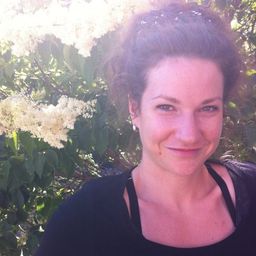Myra J. Coulter Title : Enacting worldmaking agency: multiple visions of tourism in Lunenburg Nova Scotia
My Session Status
by
Myra J. Coulter
Following the Atlantic fisheries crisis of the 1990s, coastal communities have been undergoing deindustrialization and economic diversification through the development of services-sector activities, including tourism. With a permanent resident population of 2,263, Lunenburg, Nova Scotia has been capitalizing upon UNESCO World Heritage Site status awarded in 1995, thereby transforming the socio-cultural character of the place. Whereas the town’s culture has evolved for hundreds of years according to colonial settlers’ relationship to the Atlantic Ocean, 21st century cultural evolution is proceeding according to the commodification of the town’s immaterial and built heritage. Applying the concept of worldmaking, this master’s thesis research project explores the power of tourism to transform the social, spatial and cultural character of Lunenburg.
Normative and normalized worldmaking for and through tourism, an agent of globalization and neoliberal capitalism, often produces a reality which is simultaneously advantageous to some populations and suppressive to others. For example, the production of precarious and feminized tourism work and workers, and of uneven spatial (im)mobilities, are evidence of the tourism industry’s simultaneous reliance upon, and re-creation of, the system of global capitalism. However, tourism is constituted by, and relies upon, the very peoples and places it (re)produces. Thus, the potential to disrupt the interconnected, co-constitutive and multi-scalar relations, practices and processes making unethical tourism worlds is great. It is argued that mapping the dynamic power relations producing and defining uneven positionalities in tourism worlds may lead to progressive detachment from singular, hegemonic socio-cultural representations and trajectories and, ultimately, to the imagination and creation of ethical alternatives.
This project examines multiple versions and visions of Lunenburg and its populations. Indeed, multiple and diverse tourism community stakeholders are simultaneously subject to, and agents of, the ongoing and uneven processes making, de-making and re-making tourism worlds. Specifically, this empirical research draws upon the lived experiences of regionally mobile women contributing to Lunenburg’s tourism workforce, living temporarily or (re)establishing residence in the region. In an effort to disentangle the economic, political, social and cultural forces producing a particular tourism-based community trajectory, the research framework combines mobile ontology, worldmaking theory and autoethnographic process.
Echoing the Atlantic fisheries crisis of the 1990s that served as a catalyst for fundamental transformation in Lunenburg, the sudden onset of the global COVID-19 pandemic in 2020 is disrupting the research context and threatening the international tourism industry upon which Lunenburg has come to rely. Indeed, the current and ongoing public health and economic crisis contributes to the ambiguities, complexities and contradictions that this project attempts to work through. Whereas pausing, breathing and reflecting are found to be activities conducive to progressive detachment from dominant worldmaking power, the restrictions to local and global travel in 2020 represent an opportunity for tourism stakeholders at all levels to pause and critically reflect upon the role of tourism in contemporary societies. In the form of a typical research communication, I wish to contribute a presentation of my master’s thesis research process and product to the third edition of Critical Tourism Studies North America, in June 2021.
